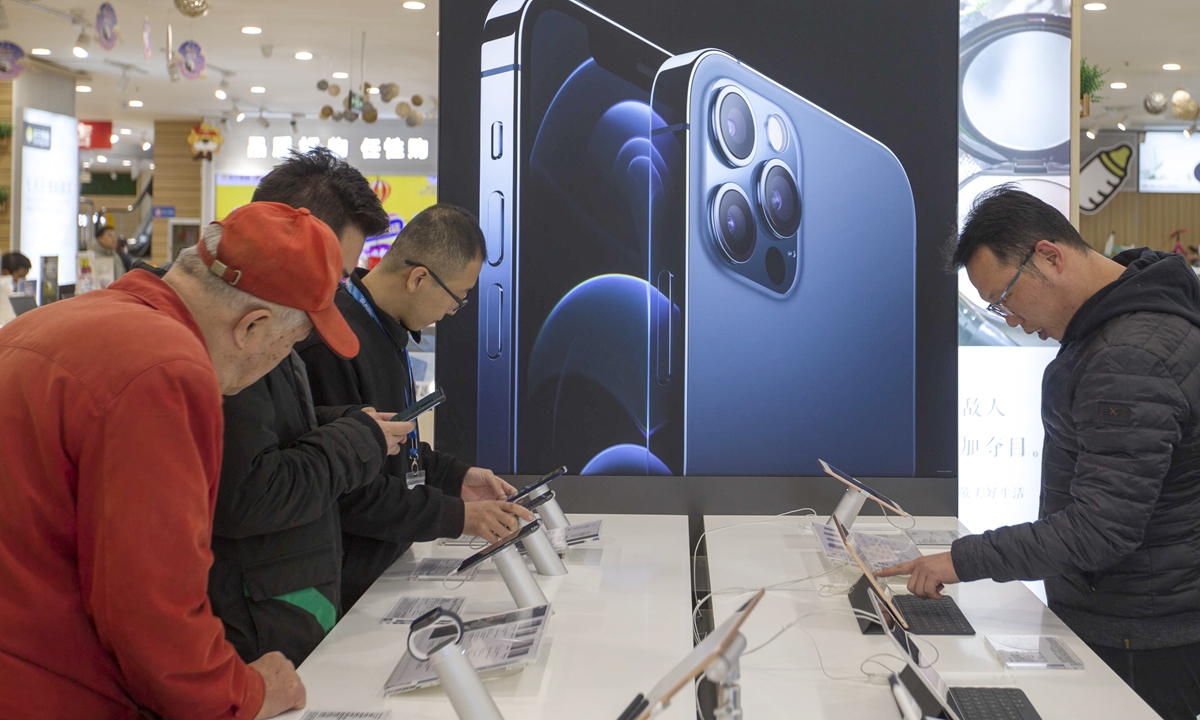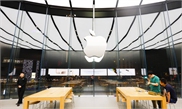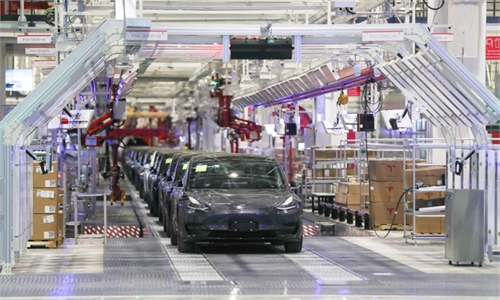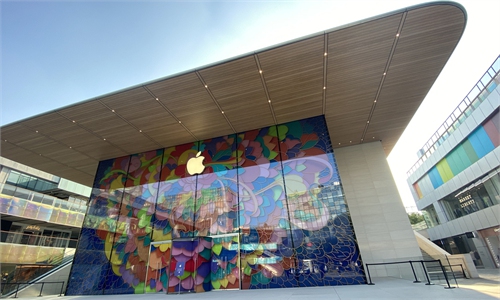China sparks record quarter for Apple, Tesla
Mainland market increasingly a mainstay for noted US brands: analysts

People shop at an Apple store in North China's Shanxi Province on October 23 after iPhone 12 was newly launched. Photo: cnsphoto
Both Apple and Tesla posted record revenues for the fourth quarter of last year, with the credit to a large extent going to their stellar performance in the Chinese market, essentially discouraging any moves in favor of a continuation of the US tech war with China, market observers said, forecasting the Joe Biden administration to weigh business interests over anti-China political ossification.
Apple posted record quarterly revenue of $111.4 billion, an increase of 21 percent year-on-year, driven by record sales of iPhones including the iPhone 12 lineup, according to its fiscal disclosure on Wednesday (US time).
Strong iPhone sales fueled a 57-percent surge in Apple's net sales in China for its fiscal 2021 first quarter ending on December 26, 2020, according to media reports.
Apple's surging sales in China have been primarily a result of Huawei's supply shortage, which left a large "gap market" for the iPhone maker, Xiang Ligang, director-general of the Beijing-based Information Consumption Alliance, told the Global Times on Thursday.
According to Xiang, Huawei started to face supply difficulties in mid-September last year, and the company is also taking steps to voluntarily limit production to plan for the future. As a result, Apple lost its biggest competitor in the mainland high-end mobile phone market.
The iPhone maker reclaimed the crown in global smartphone rankings by shipments in the fourth quarter with 23.4 percent of the global market, followed by Samsung and Xiaomi, according to data released on Thursday by market research firm IDC.
Huawei was only ranked fifth with an 8.4-percent share of the global market as its global shipments plunged 42.4 percent year-on-year over the quarter amid US sanctions.
The dazzling quarterly results, in part benefiting from the US crackdown on Huawei, might not be sustainable, as the Biden administration is very likely to admit the long-term hazards behind the US bans involving Chinese tech companies.
But it's an undeniable fact that the Chinese market is increasingly a mainstay for notable US brands, analysts said.
In another sign, Tesla recorded its first-ever quarter of more than $10 billion in revenues in October-December and its first profitable full year after the bell on Wednesday, underpinned by its strength in the Chinese market.
The US electric carmaker revealed earlier in January it had delivered 499,550 vehicles last year, slightly shy of its half-million goal.
Tesla's Model 3 was the bestselling new-energy vehicle (NEV) in China in 2020, with roughly 138,000 sold, or one-eighth of all NEVs sold in the country, per data from the China Passenger Car Association.
Zhang Yi, CEO of consultancy firm iiMedia Research, said that China has become a "model market" for Tesla, which means Tesla will test a product first in China and then sell it to the whole world based on the reception in China.
"This is because almost no other market can be as huge and active as the Chinese market. It's hard to say if the Chinese market will surpass Tesla's local markets (US) in importance, but China is sure to become a market of great guidance and strategic importance to Tesla," he said.
He said that behind Tesla's and other US companies' success in China is the country's economic surge, which gave rise to great momentum in consumption.
"The trend is augmented by the fact that all major markets, except China, are sloping down because of the pandemic," he told the Global Times.
Zhang said that with US companies achieving great success in China, it is to be expected that Biden's policies will tilt toward the Chinese market, as he has to take the interests of those companies into consideration.
"I don't think he will totally reverse Trump's crackdown methods on Chinese technology companies but he will relax them, leaving loopholes so that business can continue between companies like Huawei and US companies. I think the worst days are over for Huawei and other sanctioned companies, in terms of external crackdowns," he said.
Independent technology analyst Liu Dingding said officials in overseas countries are increasingly seeing that competition outperforms exclusion, and it's unlikely that Biden, with his abundant political experience, can't see that.
"The fact that US capital markets give a high valuation to Tesla shows that US investors are very optimistic about the China-US relationship in the future, despite past friction," Liu said, predicting that previous crackdowns on Chinese companies like the blacklist will be lifted "very soon."
Agreeing on the possibility of a curtailment of crackdown measures on China's technology sector under Biden's presidency, Xiang commented "a tech war would only spoil those industrial giants' business prospects in the booming Oriental market."



